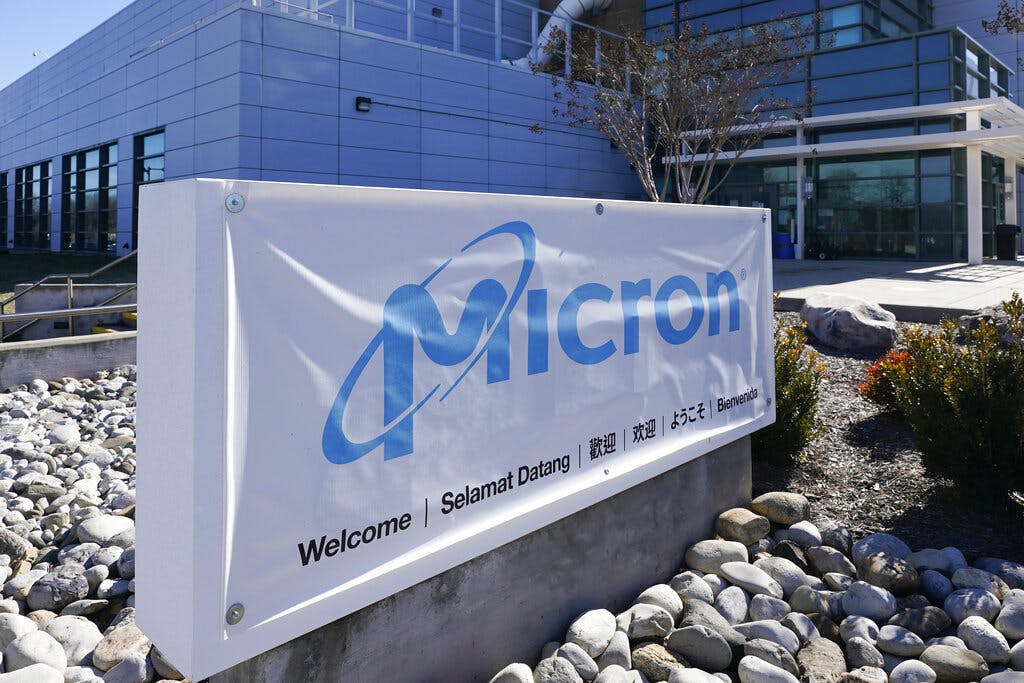China Cries ‘Uncle’ in Computer Chip War With America — Or Does it?
China’s pronouncement of subsidy cuts for computer chip makers sounds more like posturing than economic stewardship.

With an economic slowdown suggesting China’s growth rate may fall below 3 percent this year, Beijing’s announcement Wednesday that it could stop subsidizing its semiconductor industry may be a lesson in “fool me once, shame on you; fool me twice, shame on me.”
Bloomberg News reported that Chinese officials “are discussing ways to move away from costly subsidies that have so far borne little fruit and encouraged both graft and American sanctions.”
The report follows an October announcement from the Department of Commerce that exports of computer chips to China will be strictly curtailed. The sanctions would not only prevent semiconductor exports to Chinese companies by American firms, but also impose a ban on overseas exports of chips produced with American-made equipment. The ruling affects the vast majority of the world’s semiconductor fabrication facilities.
China’s pronouncement of subsidy cuts sounds more like posturing than economic stewardship, a resident scholar at the American Enterprise Institute, Derek Scissors, says. He says such announcements are usually how they “game policymaking in other countries.”
The Biden administration “hasn’t implemented its export controls on semiconductors yet, and the Chinese are now starting to say, ‘Oh, we made a mistake. We’ll change and then everything will be nice,’ right?” Mr. Scissors tells the Sun. “If the administration grabs onto that, you could have a walkback of the semiconductor conflict.”
“I don’t believe that, and I think we could have, later this year, an apparent truce, which then will blow up in 2024-2025,” he predicts.
China’s latest move comes against the backdrop of a growing “chip war” between China and America. Semiconductors are used in virtually every industry — not just in computers or smartphones, but in automotives, defense, health care, energy, and any consumer products connected to the heavily marketed Internet of Things.
Ownership of the semiconductor industry has been dominated by America for decades, but the ubiquity of semiconductors means China’s manufacturing dominance has an outsized influence on the supply chain. Slowed or inferior production could cause a chain reaction across the globe. The world got a taste of that during the Covid-19 pandemic.
To avoid that outcome, American lawmakers, industrialists, and the Biden administration have sought to diversify production sources as well as to prevent China from developing its own state-of-the-art semiconductors, which would have wide economic and national security ramifications.
“Semiconductors are more important than oil,” Mr. Scissors says. “If their chips are just as good as everyone else’s and are subsidized so they’re cheaper, then they drive people out of the chip market. They have a chokehold on the world economy.”
A geographic shift is already happening to prevent such results. The largest semiconductor manufacturer in the world, the Taiwan Semiconductor Manufacturing Company, is moving its production facilities to Phoenix from the Strait of Taiwan. The company’s decision to relocate followed bipartisan passage of the Chips and Science Act, which pledged $52 billion in U.S. investment to attract companies to reshore its facilities to America.
The Semiconductor Industry Alliance says the legislation has already attracted $200 billion in private investment, and the expected creation of approximately 40,000 jobs throughout the U.S. semiconductor supply chain.
That may be a drop in the bucket compared to the $2.7 trillion direct and indirect contribution semiconductors make to global GDP, according to the Global Semiconductor Alliance, but it could portend bigger moves to prevent China’s interruption of semiconductor production.
Last month, China filed a dispute at the World Trade Organization, demanding the group invalidate America’s trade ban. Mr. Scissors says that posturing is less of a concern than the gaping hole in American policy that restricts sales exported to China but does not prevent companies from helping China to develop its own technology.
“I don’t know that [the WTO] matters very much in the semiconductor battle. It’s more like propaganda,” Mr. Scissors says. “I think there are a set of firms that make a lot of money in China and they think that’s the national interest … if they can’t make money in China it’s bad for America.”

